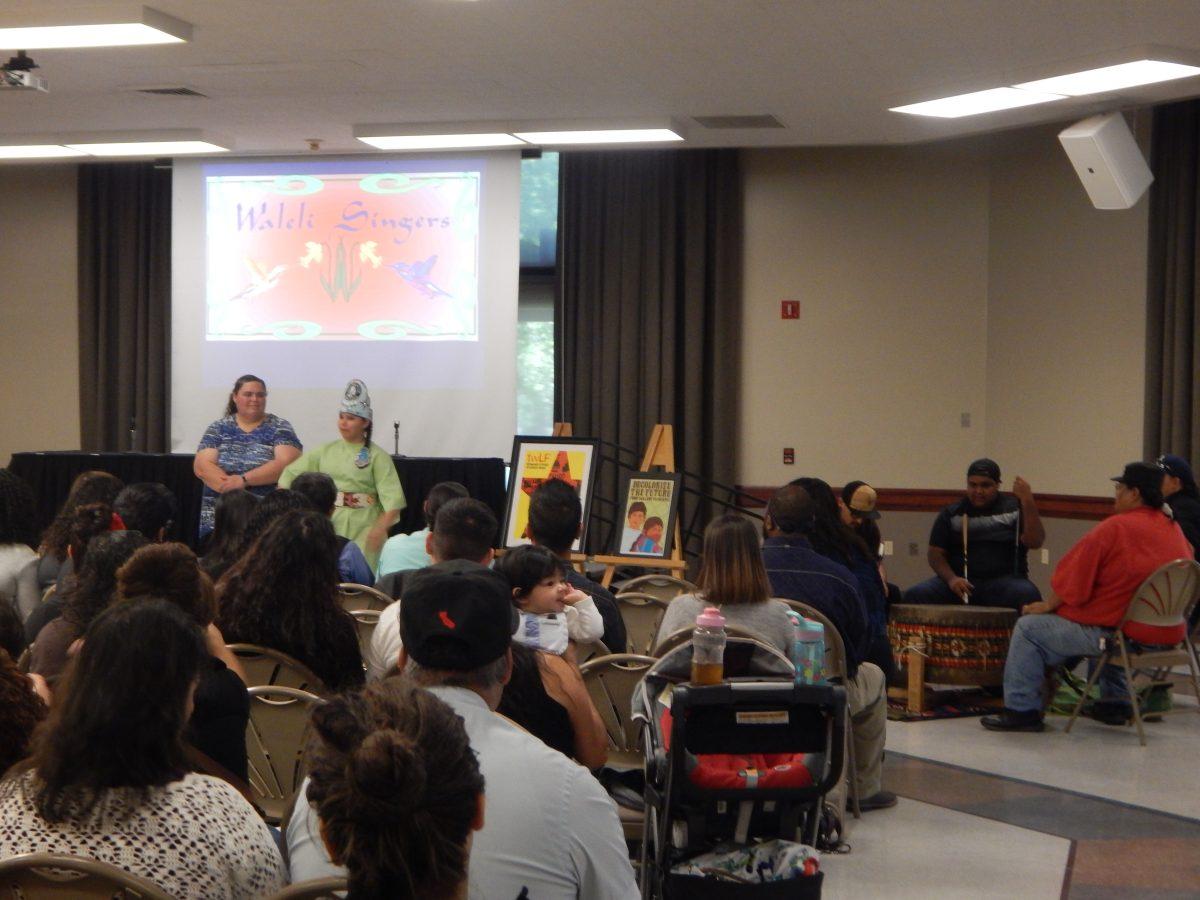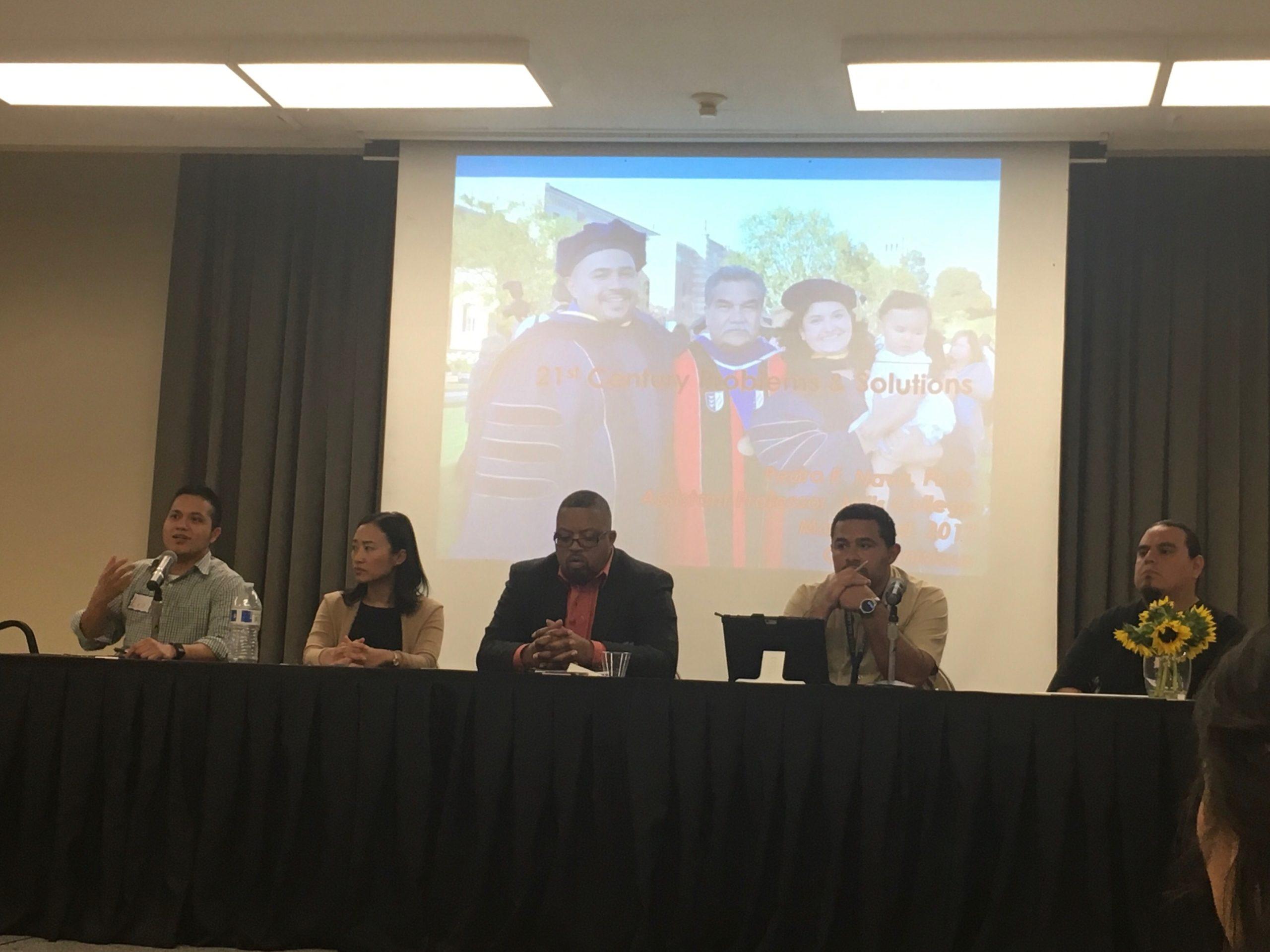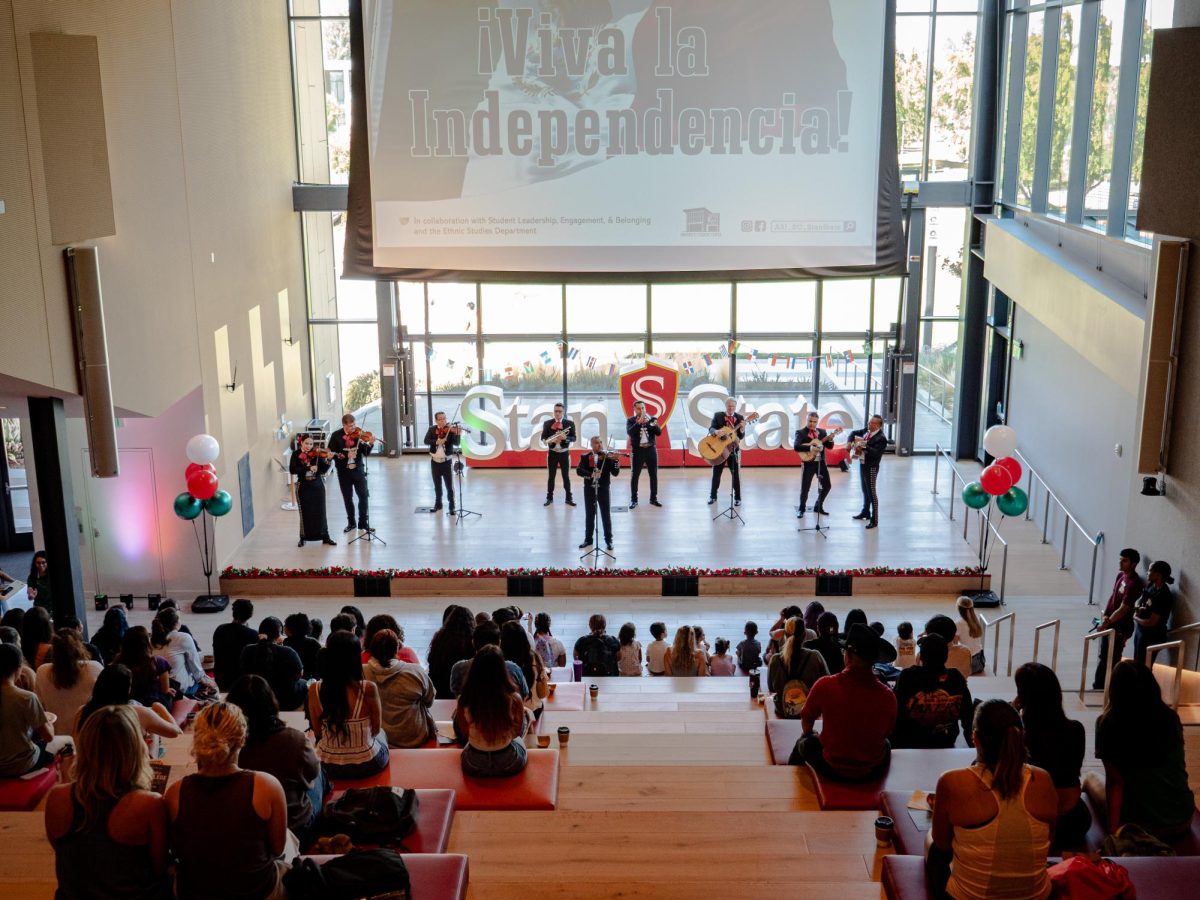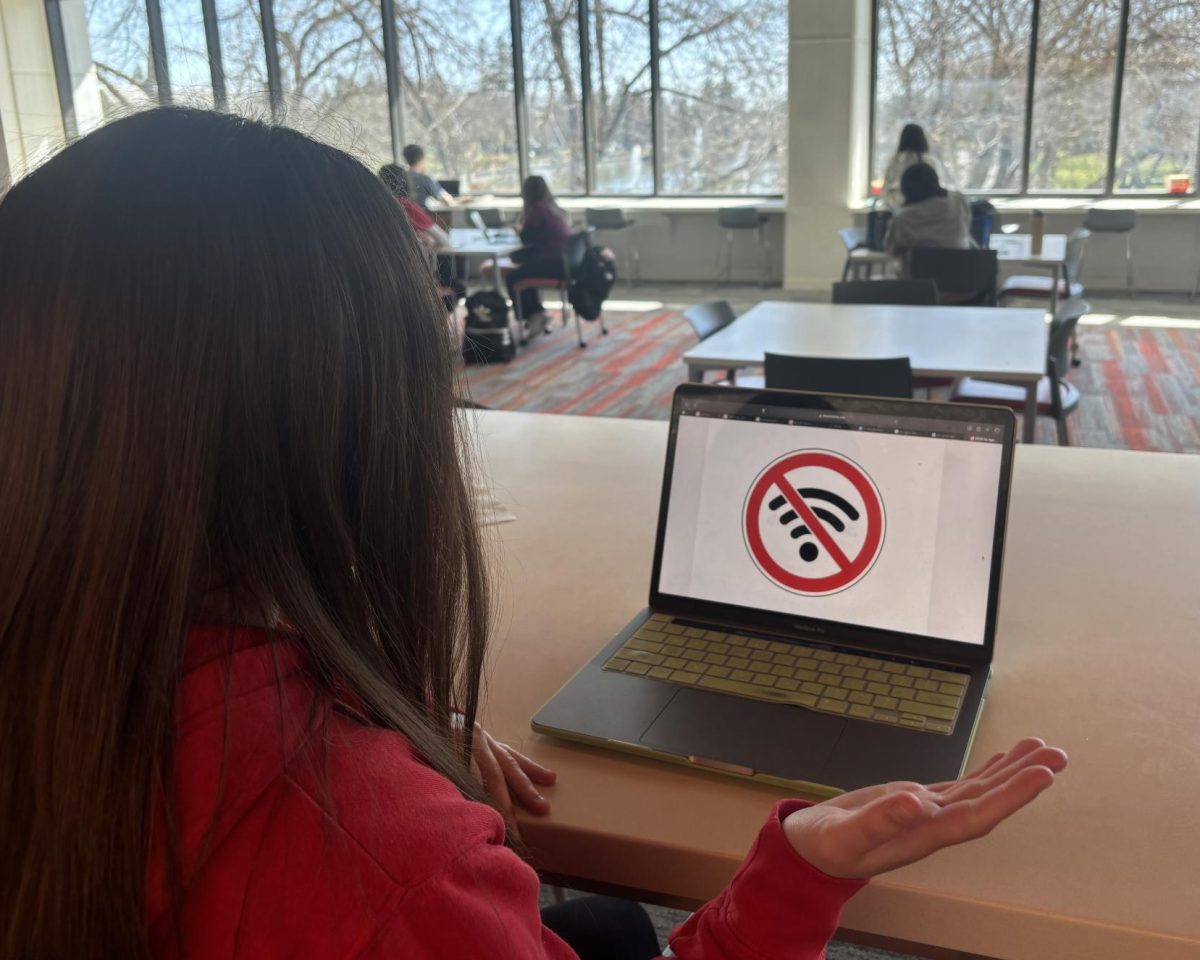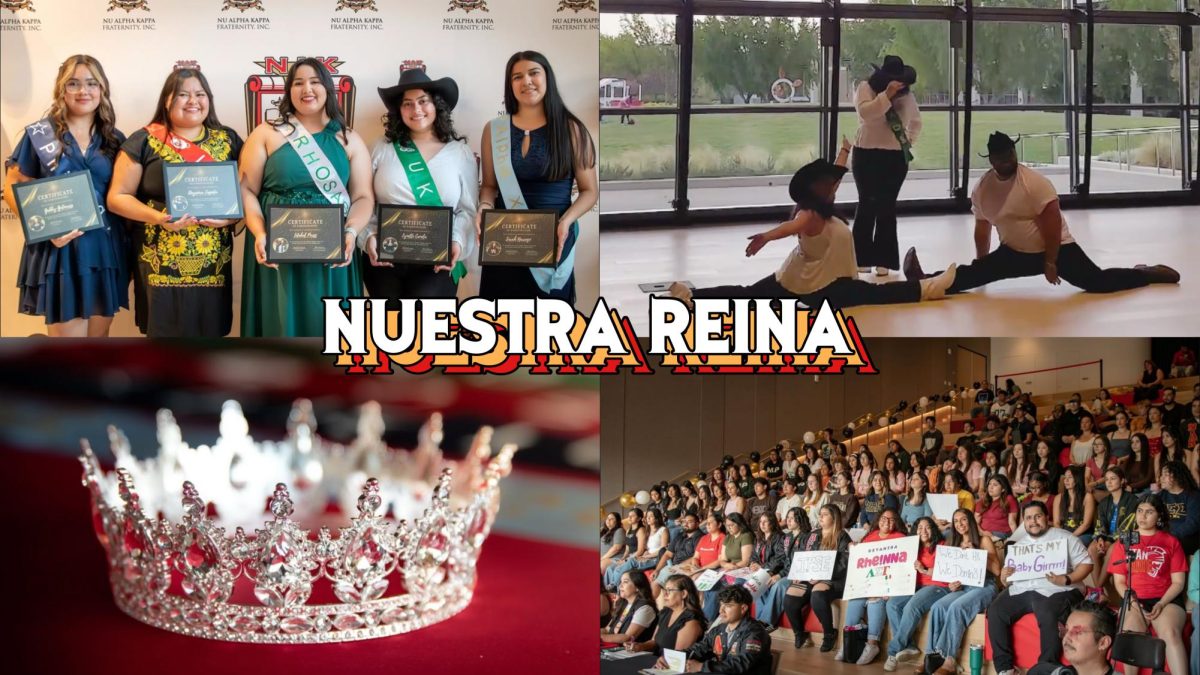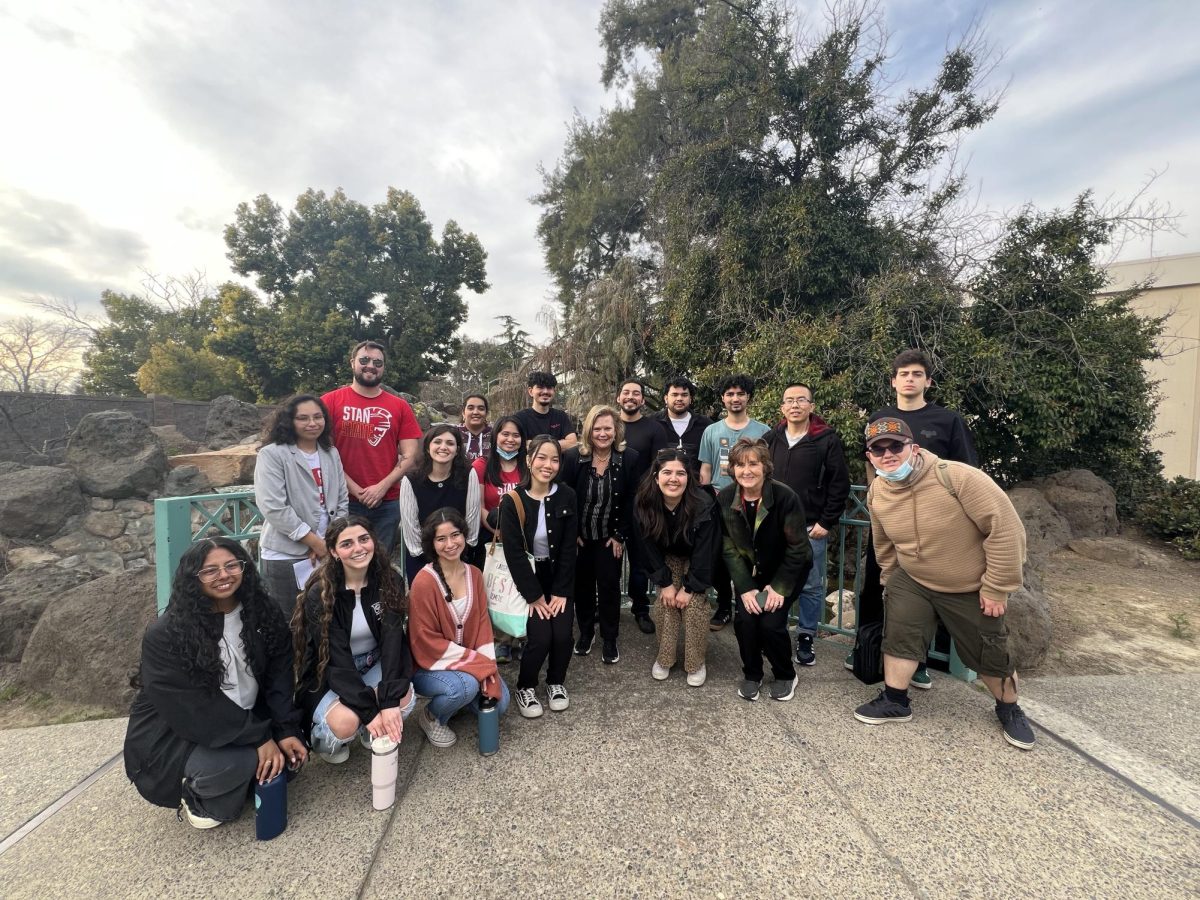For the first time ever, California State University, Stanislaus (Stan State), hosts an Ethnic Studies Conference at the Event Center. The conference had two panels of guest speakers and different workshops for the attendees to choose and partake in.
The Associated Students Incorporated (ASI), Ethnic Studies Program, Chicano/Latino Experience courses, President’s Commission on Diversity and Inclusion and many other sponsors contributed to the making of this conference.
The Ethnic Studies Conference took place at the Event Center on March 31st, and there were a variety of panels and activities planned throughout. Not only were students and faculty of Stan State invited to the conference, but people from the community and surrounding cities were also invited.
According to Delia Hernandez (senior, Liberal Studies), a student of the Chicano Experience class who helped organize the event, said, “I believe 120 to 130 people attended the conference.”
A representative of President Ellen Junn attended on her behalf, saying that President Junn wanted to attend the Ethnic Studies conference, but had been very busy throughout the week.
The Hummingbird Waleli Singers were introduced, and they are an intertribal drum and cultural group that was formed in 1994. The group represents nations such as Eastern Cherokee, Kiowa, Dine, Apache, Siletz and Pima.
Singers of the Hummingbird Waleli played their drums, captivating the audience’s attention.
The conference also had a young girl dancing with hoops. Every time she danced, different designs were created with the help of the hoops. The audience clapped every time the designs were made throughout the dance.
The conference continued with Assistant Professor Xamuel Bañales of Ethnic Studies, talking more about the history of Ethnic Studies and its origins.
The first plenary panel talked about the importance of Ethnic Studies. This panel consisted of four guest speaker who were: Corrina Gould, Dani Ahuaicapahtzin Cornejo, Dr. T. Hasan Johnson, Fuifuilupe Niumeitolu and James Sorito.
Ethnic studies is about, “democratizing the production of knowledge,” said Dr. T. Hansan Johnson.
This panel focused in breaking down the true definition of Ethnic studies and why it is so important to preserve this “invisibilized” knowledge.
As a collective, the first panel stressed the importance of having Ethnic Studies be a fundamental and essential requirement for students. Saying that they all agreed that it is not fair that the academy is challenging the Ethnic Studies programs. Giving the excuse that it is not a necessary mean for students to learn about these different, diverse and numerous ethnicities.
After the first panel finished speaking, the audience had the opportunity to ask questions to them.
Around 3:30 p.m. the first panel finished answering the audience’s questions, and the attendees were dismissed to attend various workshops that were offered.
Some of the workshops that were offered at the conference were: Butterfly Art, Poster Printing with Dignidad Rebelde, Graffiti spray painting and Spoken Word/Poetry with Yosimar Reyes.
Many of the people who took their children went to the Butterfly Art workshop. They were given a butterfly cutout, and they were able to paint it with any paint color they wanted and if they wanted to add glitter they were able to add some.
The Ethnic Studies Conference wanted to incorporate the Butterfly Art Workshop because the butterfly is used as a metaphor for the migrant community.
The graffiti workshop allowed individuals to express anything they felt by spray painting. Some spray painted the logo of the United Farm Workers (UFW) Labor Union and others wrote pro-Ethnic Studies messages on the boards provided.
At the Poster Printing workshop with Dignidad Rebelde, they had the opportunity to learn about poster-making and print their own. Also, Dignidad Rebelde is the artist/activist who has famously and recently created the posters that demonstrate solidarity with Standing Rock.
After the workshops, it was time for the second plenary panel guest speakers to speak, and they spoke about 21st Century problems and solutions. The guest speakers were Leo Alva, Linda Xiong, John Erwin, Pedro Nava and Dignidad Rebelde (Jesus Barraza).
The second panel of guest speakers focused on how everyone needs to become unified and help each other out as a community. The panel speakers also spoke about what they went through as they were growing up in their communities, as well as the problems that different communities are facing in current days.
“As long as we work together we can find a solution to the problems that our community is facing,” Xiong said.
Xiong was raised in Merced, and her passion is helping people. She is the founding member of Project Prevention Coalition (PPC).
Throughout the speaking of the second panel, they agreed that by joining together we can advocate for people who are afraid to speak out.
“We need people who will advocate for our people, especially with the political climate right now,” said Nava.
The Ethnic Studies Conference ended with the performance of Floor Magnets, blueprint speech from the Chicano/a Experience class and the poetry stories of Reyes, and a prayer said by Daniel Cornejo-Warner.
Cristina Carrillo (junior, Social Science) attended the conference because she is actually taking the Chicano Experience class, and it inspired her to dig for the truth and decided to attend the conference.
“I liked it, it inspires me to get a minor in Ethnic Studies. Listening to the stories that they told us and what they went through,” Carrillo expressed.
Jassica John (senior, Psychology) enjoyed the whole conference and what the guest speakers of the second panel were talking about and the performance of Reyes.
“I loved his energy,” said John when talking about the last performer of the closing at the conference.
“I believe the response of the people was positive. They were surprised of the information they obtained of Ethnic Studies and the minorities,” Hernandez said.
“Our main motivation would be our professor Bañales. He insists we have our voices heard in this campus. This project was done to show us student to organize. Latinos make 50% of the population of this campus and we need to get our voices heard,” Hernandez added.
With a full house, the first annual Ethnic Studies Conference demonstrated to be a success at Stan State. Students, community members and everyone else who attended seemed to be very interested in what the speakers had to say and were amazed at the different performances.
“The feeling is very rewarding to be part of a great project and working with our colleagues and the faculty that makes the community aware of Ethnic Studies and why it is critical for students to take,” Hernandez said while taking pride in organizing the first Ethnic Studies Conference hosted by Stan State.
For more information about the Ethnic Studies club contact them through their Facebook Page.
Categories:
First annual Ethnic Studies Conference hosted at Stan State
The Hummingbird Waleli Singers talking to the audience at the Ethnic Studies Conference on Mar. 31 and the drummers are on the right side. (Signal Photo/Francely Santos)
0
More to Discover

